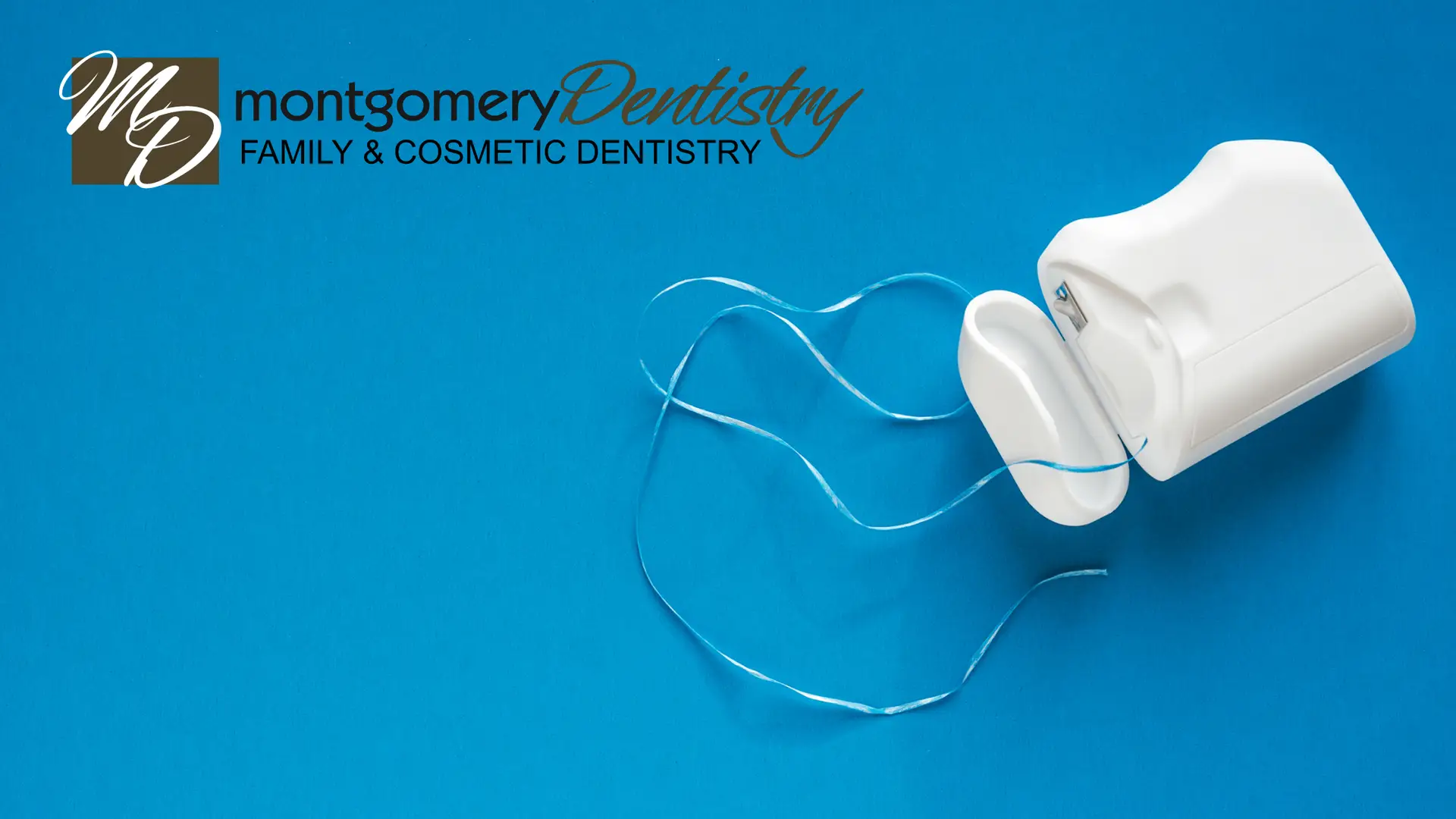Good dental hygiene involves more than just brushing your teeth.
Flossing contributes to good dental hygiene because it lifts and removes plaque and food in between your teeth. Brushing also does these things, but the bristles of a toothbrush can’t reach where floss can. Flossing also reduces the risk of gingivitis, gum disease, and tooth decay.
Floss Before You Brush
Have you ever wondered if it matters whether you floss your teeth before or after you brush? There actually is a preferred way!
Flossing after you brush leaves bacteria, food, and plaque that came from between your teeth floating in your mouth until you brush again, which might be several hours. Instead, flossing before you brush allows you to then brush away all the particles that were released during flossing.
Prevents Gum Disease
Gum disease is a mouth infection that destroys the soft tissue and bones that support your teeth. When there is too much bacteria on your teeth, gum disease can occur. The sequence of flossing and then brushing reduces your chances of developing gum disease.
Gum disease, also called Periodontitis, happens when plaque forms on your teeth and hardens under your gumline into tartar, or calculus. The longer this build-up stays on your teeth, the more damage it can cause.
You might not develop gum disease to its full extent, but any build up on your teeth can still cause gingivitis, which is the mildest form of gum disease. Gingivitis is irritation and inflammation of the part of your gum tissue around the base of your teeth. Gingivitis can be reserved with dental treatment and good home oral care.
Symptoms of Gum disease include:
- Swollen or puffy gums
- Bright red or purplish gums
- Gums that easily bleed
- Gums that feel tender when touched
- Bad breath
- Painful chewing
- Etc.
If you notice any of these symptoms, schedule an appointment with your doctor.
Flossing Tips
Hopefully, you’re convinced that flossing is a part of your daily routine that you don’t want to skip! Not sure where to start? Here are a few flossing tips from the experts:
- Keep it simple, don’t overcomplicate the process. Just fit it into your nightly or morning routine.
- No need to purchase anything fancy, traditional floss will do the trick.
- Stay consistent and floss daily.
- Be gentle. Don’t be too aggressive and try to avoid making your gums bleed.
- Don’t miss your dental checkups every 6 months!
Good hygiene is an important part of your overall health. Preventing cavities and gum disease is possible if you practice good dental habits. Floss daily, and brush right after. Include a mouthwash when needed to further strengthen your oral health.
About the Author
-

Dr. Jay L. Robertson
Dr. Jay Robertson joined our practice in July 2008. He is from Montgomery and is a graduate of Saint James School, Birmingham-Southern College, and the University of Alabama, Birmingham School of Dentistry. He is a member of the American Dental Association, the Alabama Dental Association and the Academy of General Dentistry.
Dr. Robertson and his wife Jennifer have four children, John Campbell, Julian, Lowe, and Ansley.
Dr. Robertson serves on the board of the Montgomery Quarterback Club and is a member of the First United Methodist Church of Montgomery. When not at work, Dr. Robertson enjoys all things sports, including Auburn, golf, and his children’s various sports.
